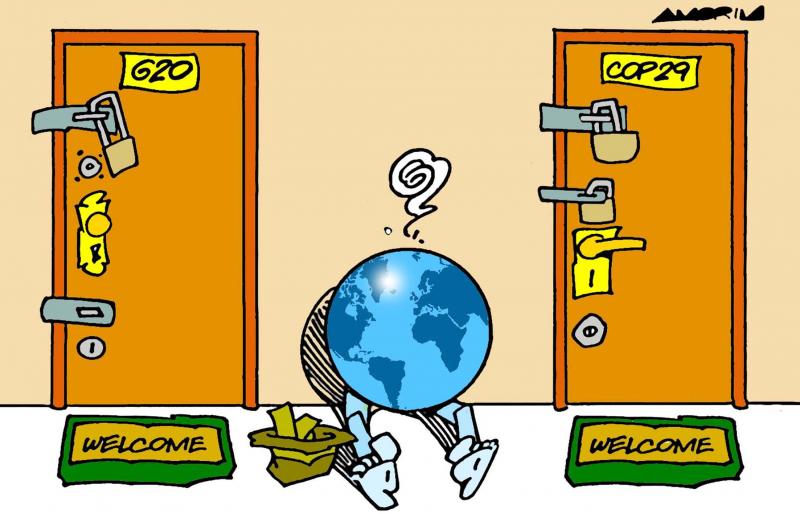Everyone seems to have lost faith. On Sunday 24 November, COP29, held this year in Baku (Azerbaijan), came to a close with a hard-fought agreement that is already attracting widespread criticism. For some, the result is a “neo-colonial” text that signals a worsening of relations between the global North and South.
The main achievement of the so-called “COP of finance” is the payment of 300 billion dollars (roughly 286 billion euro) a year by wealthy countries to developing countries to help finance the green transition. The sum has been heavily criticized by some developing nations as being too low, given that the actual amount required is five times greater than the aid granted.
Another major outcome of the conference was the introduction, after almost ten years of negotiations, of new rules to govern international carbon markets. Here again, there's a snag: these regulations could enable countries and companies to continue polluting while benefiting from a system that still lacks transparency.
For their part, the G20 leaders, meeting in Rio de Janeiro for the closing of their summit, acknowledged the necessity of "substantially scaling up climate finance from billions to trillions from all sources" and "accelerating and scaling up climate action". However, precise targets or deadlines are still notable for their absence.
Do you like our work?
Help multilingual European journalism to thrive, without ads or paywalls. Your one-off or regular support will keep our newsroom independent. Thank you!
















